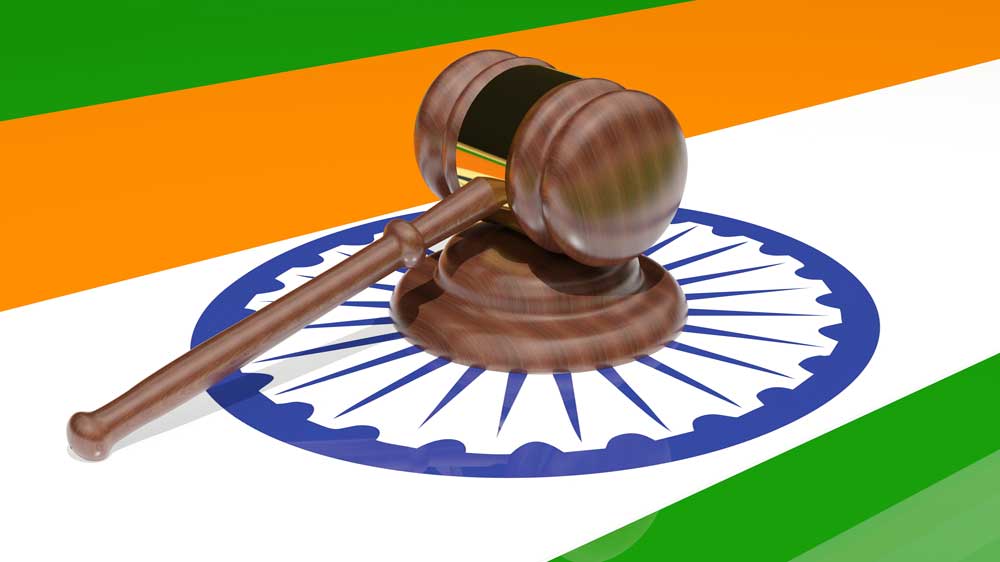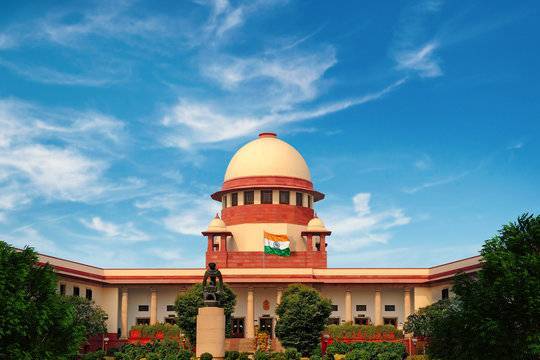
GAG LAWYERS -
GROVER & GROVER ADVOCATES

GAG LAWYERS -
GROVER & GROVER ADVOCATES

Muslim Lawyer, Muslim law in India is derived from the Quran and the Hadith, which are the two primary sources of Islamic law. The Quran is the holy book of Islam which contains the teachings and instructions of Allah, while the Hadith is a collection of the sayings and deeds of the Prophet Muhammad (peace be upon him). Other sources of Muslim law include the Sunnah, which is the practice of the Prophet, and the Ijma, which is the consensus of the Muslim community.
Under Muslim law in India, marriage is considered to be a contract between two individuals and is regulated by the Muslim Personal Law (Shariat) Application Act of 1937. The consent of both parties is required for a valid marriage, and the marriage must be registered with the local authorities.
1. Divorce is also regulated by the Muslim Personal Law, and the husband has to issue a talaq, or a written declaration of divorce, to his wife in order for it to be valid.
2. Inheritance is another important aspect of Muslim law in India. All Muslims are entitled to a share of the inheritance from their parents upon their death. The distribution of inheritance depends on the Sharia law, and the deceased’s wishes may also be taken into consideration
3. Adoption is also regulated by Muslim law in India. Adoption is not recognised as a legal form of relationship, and no legal rights are conferred upon the adopted child. However, an adopted child is allowed to take on the name of his or her adoptive parents, and is allowed to use the same inheritance rights as a biological child.
4. Under Muslim law in India, punishments for certain crimes are regulated by the Sharia law. These punishments include floggings, amputations, and death by stoning, depending on the severity of the crime. However, these punishments are only applicable in cases where the accused has been found guilty in a court of Laws.

Types of ACT under Muslim Law:
1) Contract of Marriage (Nikah): This is the most important contract under Muslim law and governs the relationship between husband and wife. It involves various obligations and rights of each spouse, including the payment of mahr (dower) by the husband to the wife at the time of marriage.
2) Waqf: This is a legal arrangement whereby a person dedicates a portion of their property for a charitable purpose. It is generally irrevocable and the property is managed by a waqif (trustee).
3)Will (Wasiyat): This is a legal document in which a Muslim can bequeath his or her property to relatives, friends or charities. It is revocable and has to be attested by at least two witnesses.
4)Gift (Hibah): This is a voluntary transfer of property from one person to another, usually for a specific purpose. It is revocable and does not require the presence of witnesses.
5)Endowment (Waqf): This is a charitable trust in which the donor gives a portion of their property for religious or charitable purposes. The waqf is managed by a trustee, and the beneficiary of the trust normally receives a share of the income generated by the trust.
Provisions under Muslim Law:
1) Right to Property: Muslim law recognizes the right of a person to own and dispose of property. This includes the right to bequeath property through a will and to make gifts.
2) Inheritance: Muslim law lays down specific rules for inheritance which are based on the Quran and Sunnah. According to these rules, a person’s heirs are given a fixed share of their estate.
3) Divorce: Muslim law recognizes the right of a husband or wife to divorce each other. Divorce can be initiated through the courts or through an agreement between both parties.
4)Maintenance: Muslim law provides for the payment of maintenance to a divorced or widowed spouse or to children of a deceased parent. This includes food, clothing and shelter.
5) Adoption: Muslim law allows a person to adopt a child and treats the adopted child as if they were the natural child of the adopter. The adopted child is entitled to the same rights as a natural child.

Under Muslim law, there are several rights and obligations that must be observed. These rights and obligations are based on the teachings of the Qur’an and the traditions of the Prophet Muhammad.
1) Muslims are obligated to practise the five pillars of faith. These include faith in Allah, prayer five times a day, giving charity, fasting during the holy month of Ramadan, and making a pilgrimage to the holy city of Mecca at least once in a lifetime.
2) Muslims have the right to freedom of religion and to practise their faith in a peaceful manner. Muslims are allowed to marry and divorce in accordance with Islamic law, as well as to own and manage property. They are also allowed to practise their own system of justice in civil and criminal matters.
3) Muslims have the obligation to follow the moral code prescribed by the Qur’an and the traditions of the Prophet Muhammad. This includes respecting their parents and elders, treating other people with respect and kindness, and avoiding any kind of immorality or dishonesty.
4) Muslims have the right to receive an education and to be provided for in social and economic matters. They also have the right to participate in public life and to engage in political activities.
5) Muslims have the obligation to work for the benefit of the Muslim community and to ensure peace and stability in their society. They must also strive to promote justice and equality, and to protect the environment. These are some of the rights and obligations under Muslim law.

Understand the cause of the dispute: Before a case is filed, it is important to understand the cause of the dispute. This could be related to inheritance, marriage, or any other matter that falls under the jurisdiction of Muslim law.
1) Choose an appropriate forum: It is important to choose an appropriate forum for filing the case. It can be in the District Court, Family Court, or High Court, depending on the nature and complexity of the case.
2) Obtain necessary documents: The documents that are needed to file the case include the marriage certificate, death certificate, and any other documents related to the dispute.
3) Draught the petition: The petition should include the facts of the dispute, the parties involved, the relief sought, and the legal arguments.
4) File the petition: The petition should be filed in court with the necessary documents. The court will then issue a summons for the other party to appear in court. After the hearing, the court will pass a judgment based on the facts and evidence presented during the proceedings.

1: Lawyers play an important role in any Muslim law case. They are responsible for providing legal advice to their clients and representing them in court. They must be well-versed in Islamic law, as well as civil and criminal law, in order to effectively represent their clients in a Muslim law case. Lawyers must also be familiar with the customs and traditions of the Muslim community in order to ensure that their clients receive a fair and just outcome in their case.
2: In a Muslim law case, the lawyer is responsible for preparing and filing all the necessary documents and forms, representing their client in court, and ensuring the proceedings are conducted in accordance with the Islamic legal system. They must also be familiar with the civil and criminal laws of the country in which the case takes place, in order to ensure that their client receives a fair and just outcome.
3: Lawyers must also be familiar with the religious, cultural, and social norms of the Muslim community, and must be able to establish a rapport with their clients.
4: The lawyer must be familiar with the Islamic legal system and must be able to interpret the relevant laws, regulations, and rulings in a Muslim law case. The lawyer must also be familiar with the customs and traditions of the Muslim community, and must be able to explain the implications of certain rulings or decisions to their clients. Additionally, the lawyer must be familiar with the legal processes and procedures in the country in which the case is being heard, and must be able to advise their clients on how best to proceed.
5: In addition to providing legal advice and representation, the lawyer must also be familiar with the customs and traditions of the Muslim community in order to ensure that their client receives a fair and just outcome. This includes understanding the nuances of the community’s cultural norms, as well as the role of the family and other members of the community in the case. The lawyer must also be familiar with the Islamic legal system, including the various types of punishments, the types of evidence which can be considered, and the types of contracts that can be entered into.
6: Lawyers play an important role in any Muslim law case. They must be familiar with the laws, customs, and traditions of the Muslim community, as well as the legal processes and procedures in the country in which the case is being heard. They must also be able to provide legal advice and representation to their clients and ensure that their clients receive a fair and just outcome. A lawyer’s knowledge and expertise are essential for a successful Muslim law case.

1) Nikahnama: A Nikahnama is a marriage contract between a bride and groom. It includes details such as the amount of Mahr (dower) that the groom agrees to pay the bride and any other conditions that the bride and groom may agree to. It is a legal document in Islamic Law and is required to be signed by both parties in the presence of two witnesses.
2) Wills: A will is a legally binding document that is used to appoint an executor and to distribute a person’s assets after their death. Under Islamic law, a will is required to be written and signed by the testator in the presence of two witnesses.
3) Divorce Deed: A divorce deed is a document that is used to dissolve a marriage under Islamic law. It needs to be signed by both parties in the presence of two witnesses.
4) Waqf Deed: A waqf is an irrevocable charitable endowment in Islam. It is a document that outlines the details of the endowment, including the objects of the endowment, the beneficiaries, and the rules and regulations of the endowment.
5) Guardianship Deed: A guardianship deed is a document that is used to appoint a guardian for a minor or an incapacitated adult. Under Muslim law, the guardian must be a trusted individual who is appointed with the consent of the minor or incapacitated adult. The deed must be signed by the guardian and the parties in the presence of two witnesses.

Grover and Grover Advocates and Solicitors are a well-established and respected legal firm in India that specialises in providing legal advice and services related to Muslim law. This firm has been in service for over 30 years and has a wide network of experienced professionals who are well-versed in the complexities of Muslim law.
The firm also provides legal advice to individuals and businesses on matters related to inheritance, marriage, divorce, and family law. At Grover and Grover Advocates and Solicitors, clients are provided with a personalised approach to legal advice. The firm’s team of experienced professionals understands the nuances of Muslim law and is able to provide expert advice tailored to the individual’s needs. Clients are provided with assistance on a variety of matters including wills, family business, marriage and divorce agreements, and inheritance rights.
The firm also provides representation in court proceedings, offering assistance to clients in civil and criminal cases related to Muslim law. The firm’s lawyers are well-versed in the complexities of Muslim law and are able to provide legal counsel on a variety of matters. The firm also provides assistance to clients in matters relating to the enforcement of Islamic laws and regulations in India.
The firm also offers its clients mediation services, which involve the negotiation of disputes between parties in a non-adversarial setting. The firm’s experienced mediators are able to work with both parties to reach a mutually beneficial agreement that is in line with the principles of Muslim law.
Grover and Grover Advocates and Solicitors is committed to providing clients with the highest standard of legal advice and representation. The firm is dedicated to helping its clients navigate the complexities of Muslim law and ensure that their rights and interests are protected. The firm’s team of experienced professionals is committed to providing clients with a personalised approach to legal advice and representation.

Subsequently, the Indian Parliament passed the Muslim Women (Protection of Rights on Divorce) Act, 1986 which effectively overturned the Supreme Court’s decision.
1) Shah Bano Case (1985): In this case, the Supreme Court held that a Muslim woman who was divorced by her husband was entitled to maintenance under Section 125 of the Code of Criminal Procedure, 1973. The judgment was widely criticized by orthodox Muslim groups who felt that it interfered with the personal law of Muslims.
2) Shayara Bano Case (2017): In this landmark case, the Supreme Court held that the practice of Triple Talaq (instant divorce) was unconstitutional. The Court also struck down the practice of Nikah Halala (a practice whereby a divorced couple must remarry in order to be able to reconcile) and polygamy as unconstitutional.
3) Ahmed Khan v. Shah Bano Begum (1985): In this case, the Supreme Court held that a Muslim woman who was divorced by her husband was entitled to maintenance under Section 125 of the Code of Criminal Procedure, 1973. The judgment sparked off a huge controversy in the country and was subsequently overturned by the Indian Parliament through the Muslim Women (Protection of Rights on Divorce) Act, 1986.
4) Sarla Mudgal v. Union of India (1995): In this case, the Supreme Court held that a Hindu husband who had converted to Islam and subsequently married another woman was still legally married to his first wife. The court held that the conversion of the husband did not nullify the marriage and that his second marriage was void. The court also ruled that Hindu personal law would apply to the case.
5) Muslim Women (Protection of Rights on Divorce) Act, 1986: This act was passed by the Indian Parliament to protect the rights of Muslim women who have been divorced. The act provides for the payment of maintenance to the divorced woman, the return of her dower, the custody of her minor children, the right to reside in her matrimonial home and other reliefs. This act was challenged in the Supreme Court in the case of Daniel Latifi v. Union of India (2001). The court upheld the Act and held that it was not in violation of any fundamental right.